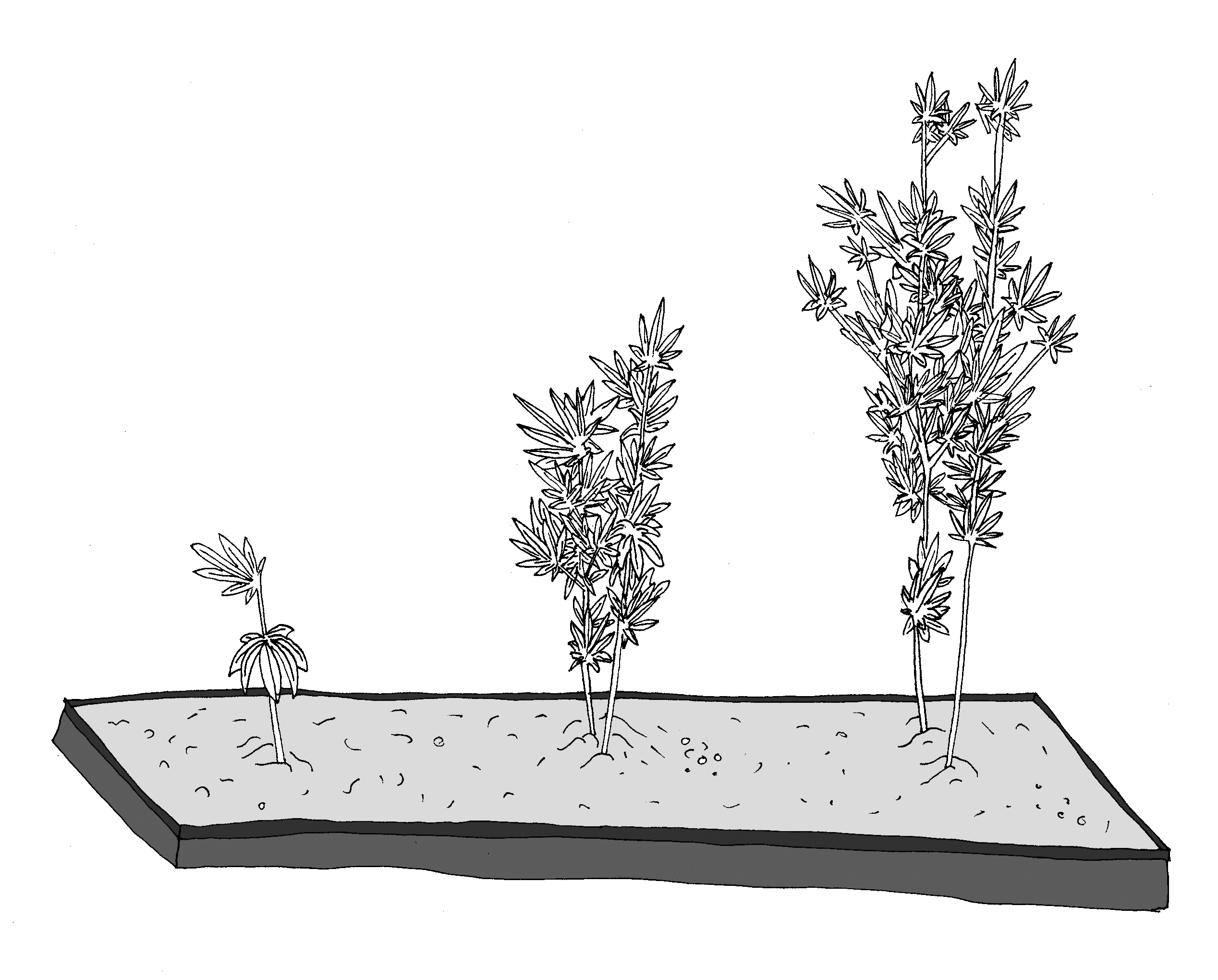Celebrate the destigmatization of marijuana
September 13, 2019
 This
piece represents the opinion of the author
.
This
piece represents the opinion of the author
.
 Sara Caplan
Sara CaplanI would like to ask a question. Dear reader, can you think of a time when you felt excluded or made fun of, or even (gasp!) marginalized because you appreciated something that seemed innocent at the time? Maybe that thing you’re into seemed so uncool to those around you, but in a way, you’ve normalized it within your experience so much that it seems wholly unreasonable to balk at it. Is it possible that society’s perception of you was sullied because you geeked out a little too hard about something that brought you peace? Without being too cryptic, I’ll just come out and say it: I’m talking about cannabis. And this marginalizing experience that I’ve described was not uncommon at one time for many users of the plant.
Stigmatization and perceived criminality are concepts woven into the fabric of the growing and use of cannabis. Case in point, the Marijuana Tax Act of 1937, a piece of legislation that established an extremely unnecessary tax structure for cannabis sales and production, effectively made any use and possession of cannabis illicit at a federal level. Accompanying this legislation was a deluge of misinformation about the “highly addictive” properties and “mania-inducing” effects of the plant, catalyzing a frenzied reaction by federal and state legislators. Sadly enough, the ones most affected by this new wave of prohibition were minorities and people of color, groups which still suffer greatly from it.
So, what about now, in 2019? It is a much different time than 1937. We are now creeping ever closer to the end of cannabis prohibition. State after state is working towards decriminalizing cannabis and implementing regulatory frameworks for both the medical and adult-use markets. And we even see some states, like Massachusetts, looking to rectify the effects of the drug war and engender levels of equity within its newfound adult-use market.
Maine isn’t much different. As of today, we have a rich medical cannabis scene with lots of brands and exciting initiatives growing roots. Adult-use licensing is just around the corner (we think, we hope), and we see regulations dictating that all CBD products sold in Maine must be made from Maine-grown hemp. Exciting stuff, yeah?
As a cannabis business owner, I feel hopeful but cautious at times. And this is due, in part, to the varying levels of elation and disappointment I, and many others, have experienced while working in weed. You have a good harvest, then the feds show up and confiscate it. You land the dream job with a great cannabis company, but it turns out that your boss isn’t paying their taxes and you get shut down. You use a little cannabis to lift your spirits, but then someone tells you that you’re an idiot for doing hard drugs.
But this is changing. And quickly. As of January 2019, we have a Cannabis Business Licensing Ordinance in Brunswick. My brother and I were elated when Brunswick approved our business license to open a medical cannabis storefront in our hometown. The fact that Brunswick ruminated for as long as it did on implementing a licensing ordinance for cannabis businesses made the victory that much sweeter. It wasn’t easy, though. The municipal process can be very esoteric, especially if you’re working in an industry that hasn’t been in favor until very recently. This is where personal relationships are incredibly important. If you seek licensure for your cannabis cultivation, storefront or extraction, then you must interact with the municipal powers that be. They took the time to implement a regulatory framework that will help you to finally step out into the light and advocate for yourself as a legitimate social and commercial power and no longer as a dirty hippie slinging drugs.
Let this be a call to action to my peers in the community of cannabis. You don’t have to hide any longer. You can finally engage with the process, even if there’s a moderately-sized grain of salt to be taken. We have municipalities that now see the value in the plant, and as someone who may choose to use or not use cannabis, for whatever reason, please continue to advocate for the decriminalization and accessibility of this substance.
Keith Carlon is the co-founder of Elevated Remedies in Brunswick.
Comments
Before submitting a comment, please review our comment policy. Some key points from the policy:
- No hate speech, profanity, disrespectful or threatening comments.
- No personal attacks on reporters.
- Comments must be under 200 words.
- You are strongly encouraged to use a real name or identifier ("Class of '92").
- Any comments made with an email address that does not belong to you will get removed.

Thank you for acknowledging the intersections among cannabis use, cannabis legislation and criminalization, and underserved and marginalized communities, including those of color.
It appears the Orient has been hoodwinked into publishing an advertisement as an “opinion piece.” Well done, Mr. Carlon. I’m sure many marginalized Bowdoin students in the “cannabis community” will step out of hiding and come buy weed at your shop. I wish you good business.
—Class of 2019
Seeing as how the staff of the Orient approached me about writing a piece, you may want to rethink your assessment of hoodwink-ery. Furthermore, the concept of cannabis stigma extends beyond Bowdoin students and their experience, hence that little tidbit about the Marijuana Tax Act (did you miss that part?), and I would wager that alumni reading this publication might find that part potentially relevant.
Thank you for your well wishes.